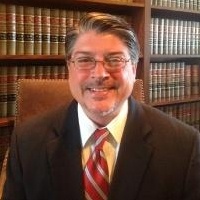Wooster Reorganization Lawyer, Arkansas
Not enough matches for Wooster Reorganization lawyer.
Below are all Wooster Bankruptcy & Debt lawyers.
Chuck Michael Douglas
✓ VERIFIEDBankruptcy & Debt, Lawsuit & Dispute, Credit & Debt, Consumer Rights, Business
Don't file Bankruptcy!
Chuck Douglas is a practicing lawyer in the state of Georgia. He received his J.D. from Georgia State University. He currently works for his privately... (more)
Stephen B. Niswanger
✓ VERIFIEDLawsuit & Dispute, Collection, Real Estate, Contract, Construction
Steve Niswanger is the managing member of the firm and has about 20 years experience in business and general litigation and transactions, with an emph... (more)
Lyndsey D. Dilks
Bankruptcy, Bankruptcy Litigation, Collection, Commercial Bankruptcy
Status: In Good Standing
Ernest H. Harper
Wills & Probate, Transactions, Commercial Bankruptcy, Lending
Status: In Good Standing
Ernest H. Harper
Wills & Probate, Transactions, Commercial Bankruptcy, Lending
Status: In Good Standing
Grace A Stramiello
Traffic, Bankruptcy, Divorce & Family Law
Status: In Good Standing Licensed: 37 Years
Herbert C. Rule
Bankruptcy & Debt, Lending, Electric Power, Real Estate
Status: In Good Standing Licensed: 60 Years
James Andrew Marshall
Estate, Divorce & Family Law, Criminal, Bankruptcy & Debt
Status: In Good Standing Licensed: 11 Years



